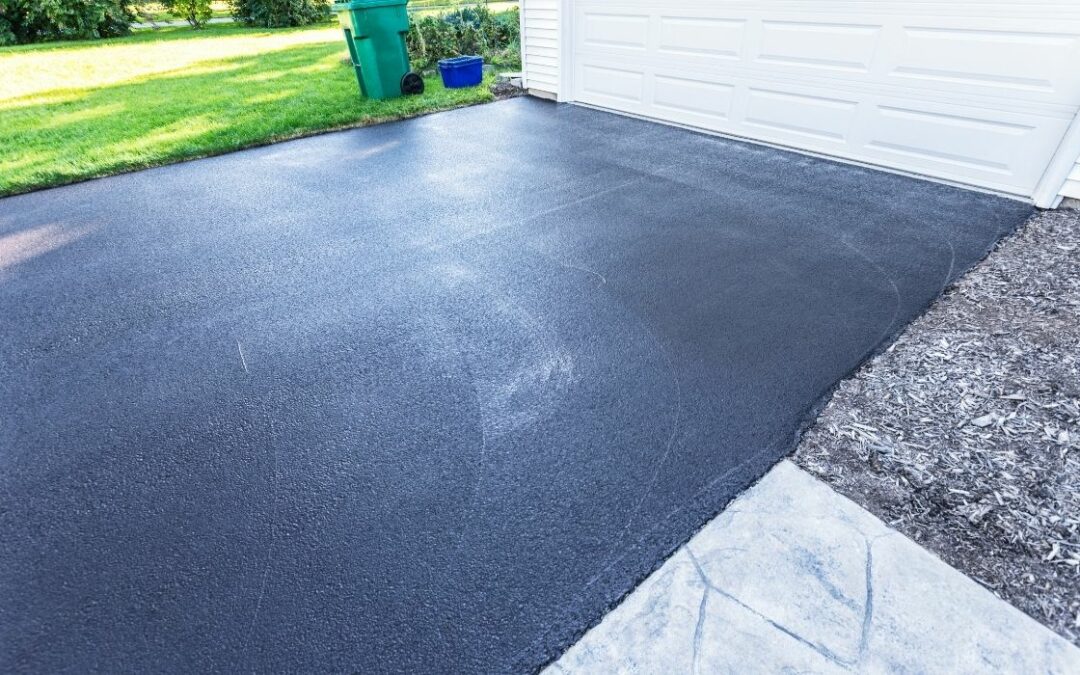Take Full Advantage Of Security with Angle Parking Areas: Superior Asphalt Sealing
Take Full Advantage Of Security with Angle Parking Areas: Superior Asphalt Sealing
Blog Article
Cold Mix Asphalt Vs. Hot Mix Asphalt: Which Is Right for You?

Composition Distinctions
Cold mix and hot mix asphalts differ considerably in their composition, with unique qualities that affect their efficiency and applications. Cold mix asphalt is created by emulsifying the asphalt binder with water and an emulsifying representative before mixing it with aggregate. This method permits the asphalt to be practical at reduced temperatures, making it perfect for short-term fixings and for use in cooler climate condition. Warm mix asphalt, on the various other hand, is manufactured at high temperatures, usually in between 300-350 ° F, which assists to accomplish better compaction and an extra sturdy final item. The hot mix asphalt manufacturing procedure involves heating up the aggregate and asphalt binder independently prior to integrating them at the asphalt plant.
Furthermore, cold mix asphalt tends to be less thick and a lot more adaptable than hot mix asphalt. This flexibility makes it far better fit for areas with greater degrees of motion, such as driveways or roads with hefty website traffic. In contrast, warm mix asphalt is understood for its high longevity and resistance to rutting and cracking, making it a favored selection for freeways and high-traffic roadways where longevity is essential.
Installment Refine Variations
The process of mounting cold mix and warm mix asphalt exhibits remarkable variances in their needs and procedures. In comparison, warm mix asphalt demands a much more elaborate installment procedure. Due to the heating demands, warm mix asphalt installments are normally carried out by experts with customized tools, making sure an extra structurally sound and long-term outcome.
Resilience and Durability Aspects
When thinking about asphalt alternatives, toughness and longevity are crucial variables to review for long lasting sidewalk performance. Warm mix asphalt (HMA) is known for its extraordinary sturdiness and durability.
In terms of long life, HMA commonly exceeds CMA as a result of its superior strength and resistance properties. HMA pavements have a longer life span, needing much less regular repair work and upkeep, which can translate to cost financial savings in the future. Additionally, HMA sidewalks are more conveniently customizable to meet specific project needs, further boosting Get the facts their resilience.
Expense Factors To Consider
Taking into consideration the monetary ramifications is a vital aspect when assessing the choice between warm mix asphalt (HMA) and cold mix asphalt (CMA) for pavement projects. While the preliminary expense of hot mix asphalt is commonly greater than that of cold mix asphalt, HMA commonly supplies a much more affordable option in the long run due to its premium see this site resilience and longevity.
Along with material costs, it's necessary to consider the expenses related to installment and upkeep when comparing HMA and CMA. HMA usually requires specialized equipment and competent labor for correct setup, which can influence overall task costs. On the other hand, CMA is simpler to deal with and can usually be applied using simpler techniques, potentially lowering installment expenditures. Eventually, the choice between HMA and CMA need to consider not just the preliminary expense yet additionally the long-term economic implications to figure out the most economical choice for the specific pavement task.
Environmental Impact Contrast
Contrast of the environmental impacts between warm mix asphalt (HMA) and cold mix asphalt (CMA) exposes distinctive distinctions in sustainability practices. HMA manufacturing needs high temperature levels, leading to boosted energy intake and greenhouse gas emissions.
Moreover, the usage of CMA typically involves reusing existing asphalt pavement, advertising resource preservation and minimizing the amount of waste sent out to landfills. By deciding for CMA over HMA, road building and construction jobs can add positively to ecological conservation initiatives.
Conclusion
In verdict, the choice between cool mix asphalt (CMA) and hot mix asphalt (HMA) depends upon numerous elements such as make-up, installation process, durability, durability, price, and environmental effect. asphalt patch view repair. While CMA provides a cost-effective and quick service for small fixings, HMA guarantees remarkable longevity and longevity for rush hour locations. Consider these elements carefully to figure out which type of asphalt is the appropriate selection for your paving requires

Taking into consideration the financial ramifications is a crucial element when reviewing the choice in between warm mix asphalt (HMA) and cold mix asphalt (CMA) for pavement jobs. While the first cost of hot mix asphalt is commonly higher than that of chilly mix asphalt, HMA usually provides a much more economical solution in the long run due to its premium sturdiness and long life. cold mix asphalt.Comparison of the environmental effects in between warm mix asphalt (HMA) and cool mix asphalt (CMA) reveals distinct differences in sustainability methods.In final thought, the option in between cool mix asphalt (CMA) and warm mix asphalt (HMA) depends on numerous factors such as composition, installation process, sturdiness, durability, expense, and ecological influence
Report this page